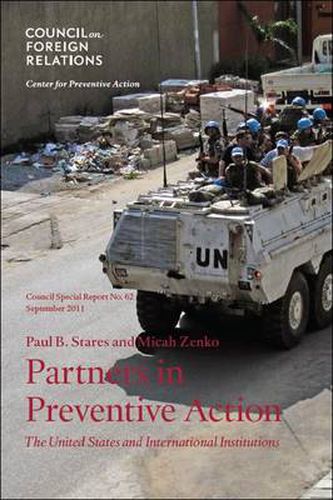Readings Newsletter
Become a Readings Member to make your shopping experience even easier.
Sign in or sign up for free!
You’re not far away from qualifying for FREE standard shipping within Australia
You’ve qualified for FREE standard shipping within Australia
The cart is loading…






The United States can ill afford additional overseas military commitments to manage the consequences of regional instability. Yet it must make a concerted effort to harness and enhance the efforts of international actors to reduce the risk of violent conflict and prevent new crises from arising. Enhancing International Preventive Action acknowledges the UN efforts,international financial institutions, regional organizations, and informal multilateral groupings that are making important contributions to the prevention of violent conflict in areas crucial to U.S. interests. Much more should be done, however, to shape and support the work of these actors. Through their assessment of the advantages and shortcomings of the principal international actors, Paul B. Stares and Micah Zenko recommend ways that the United States can help develop a more effective global architecture for preventive action.A
This report builds on an earlier study, Enhancing U.S. Preventive Action, that proposed concrete ways to improve the existing U.S. preventive framework. It precedes a third report that will examine the role of private sector actors.
$9.00 standard shipping within Australia
FREE standard shipping within Australia for orders over $100.00
Express & International shipping calculated at checkout
The United States can ill afford additional overseas military commitments to manage the consequences of regional instability. Yet it must make a concerted effort to harness and enhance the efforts of international actors to reduce the risk of violent conflict and prevent new crises from arising. Enhancing International Preventive Action acknowledges the UN efforts,international financial institutions, regional organizations, and informal multilateral groupings that are making important contributions to the prevention of violent conflict in areas crucial to U.S. interests. Much more should be done, however, to shape and support the work of these actors. Through their assessment of the advantages and shortcomings of the principal international actors, Paul B. Stares and Micah Zenko recommend ways that the United States can help develop a more effective global architecture for preventive action.A
This report builds on an earlier study, Enhancing U.S. Preventive Action, that proposed concrete ways to improve the existing U.S. preventive framework. It precedes a third report that will examine the role of private sector actors.